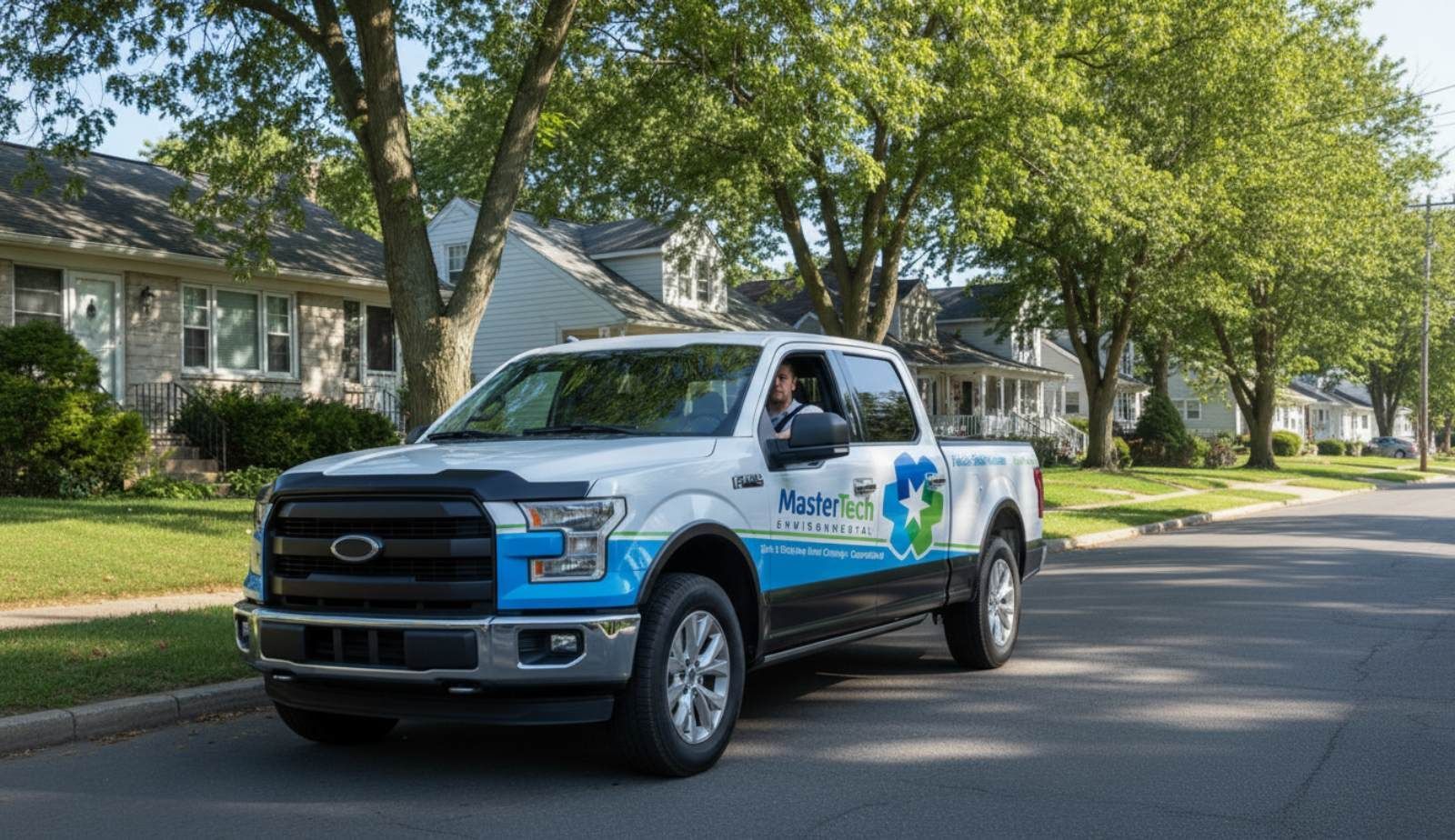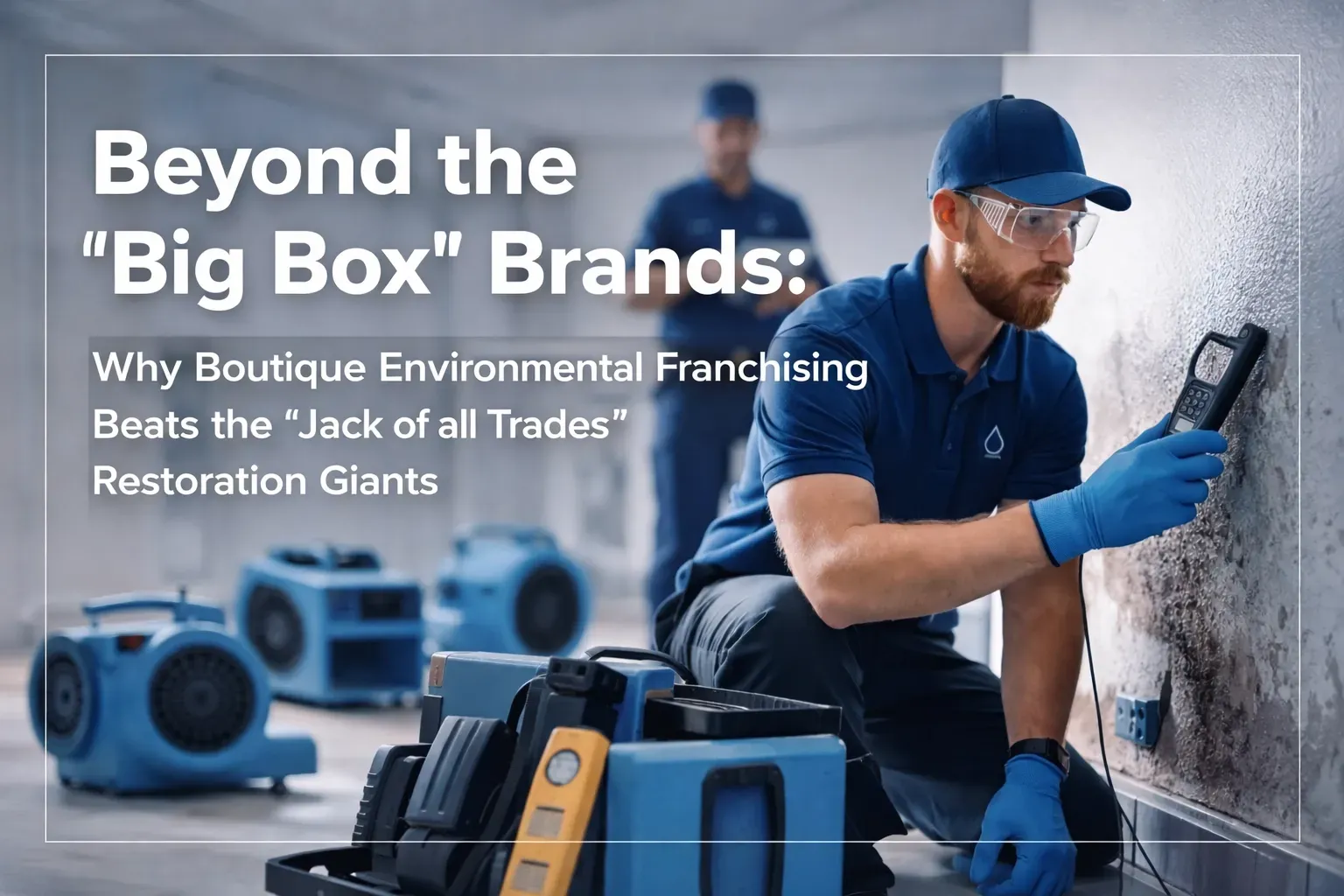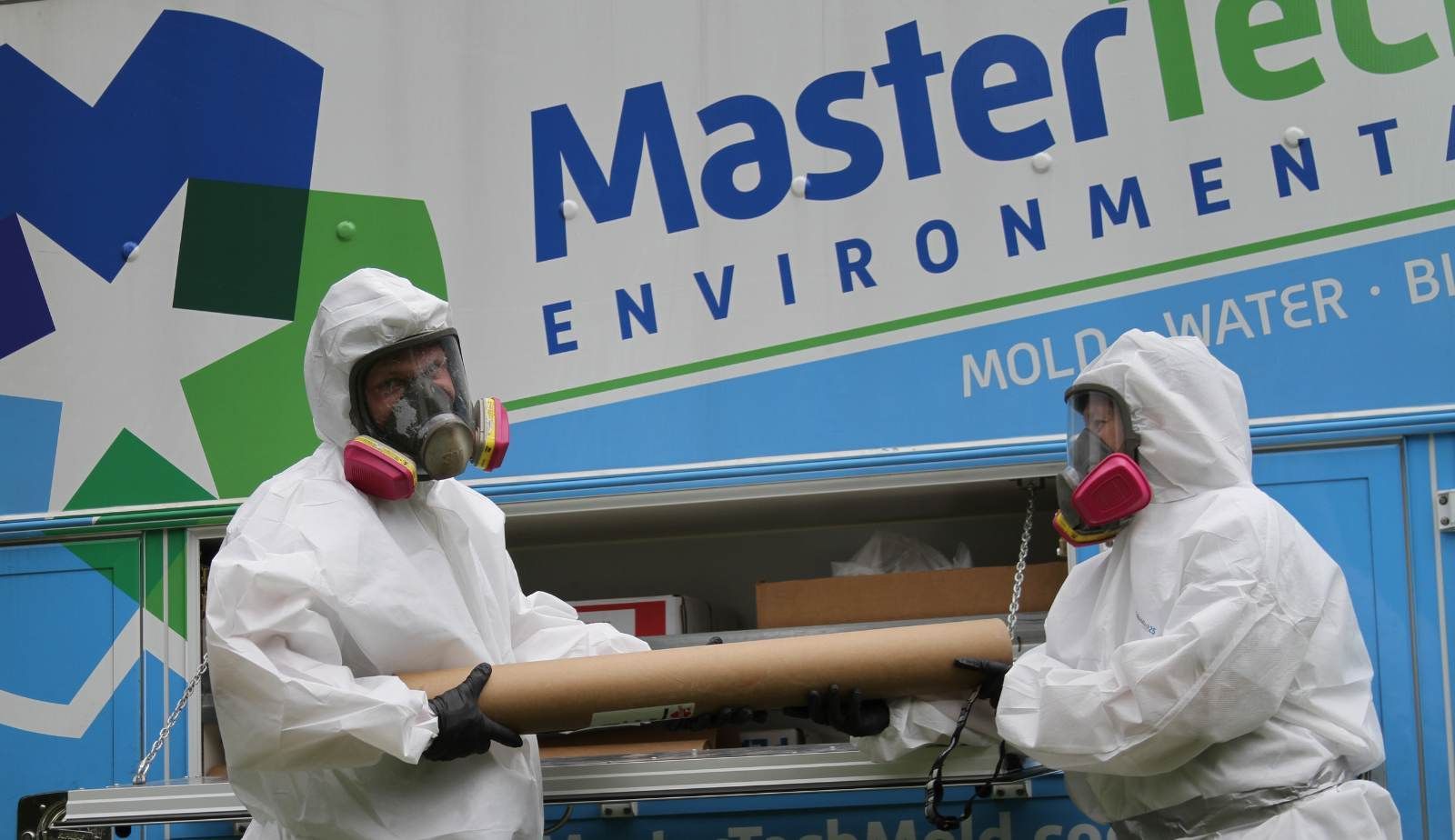
The mold and water damage restoration business stands out as a startup-friendly industry due to its low overhead costs, home-based operations potential, and the need for only a lean staff to get started. Unlike many traditional business ventures, entrepreneurs don’t need a large investment in equipment or facility space. This means that most owners can operate from home at the start, keeping expenses to a minimum while still remaining competitive in the market.
With regular demand driven by unforeseen events like leaks and storms, this industry maintains relevance throughout the year. Startups benefit from manageable startup costs, and staffing can be kept minimal by leveraging efficient training and processes. Guidance from experts like Mastertech emphasizes the value of streamlining operations and focusing on essential services to maximize profitability and efficiency.
Understanding the Mold & Water Damage Industry
Mold and water damage restoration is a highly specialized sector with consistent demand, minimal barriers to entry, and strong potential for home-based entrepreneurship. By providing critical services that maintain health and property safety, businesses in this field meet both urgent and recurring needs.
Industry Overview
The mold and water damage restoration industry addresses problems caused by moisture intrusion and microbial growth in both residential and commercial properties. Structural damage, air quality concerns, and the risk of health problems make these services essential.
Many startups in this sector operate with low overhead due to the ability to work from home and the minimal need for expensive storefronts. Licensing, insurance, and industry certifications, such as IICRC, are typical entry requirements, but the fundamental barrier to entry remains suitable training and access to equipment.
Key factors include:
- Accessible entry for small businesses
- Regulatory compliance focusing on public health
- Ability to scale from a lean operation to a full-service restoration company
Market Demand and Trends
Market research points to steady growth in demand, driven by factors like aging infrastructure, increased awareness of indoor air quality, and more frequent weather events. Insurance claims related to water and mold damage have made these services necessary for property owners and managers.
Industry reports show small restoration businesses can thrive by focusing on local or specialized markets. Trends indicate growing consumer preference for environmentally responsible and fast-response services.
Startup trends:
- Increased investment in digital marketing for client acquisition
- Use of flexible labor models for lean staffing
- Rise in home-based and mobile business operations
Common Services Offered
Most mold and water damage startups provide a core set of services, tailored by the market’s needs. Standard offerings include:
- Water extraction and drying
- Mold inspection, testing, and remediation
- Structural drying and dehumidification
- Odor removal
- Restoration and minor repairs
Many businesses expand into adjacent services, such as air quality testing or fire damage restoration. Service packages are often built around rapid response and thorough documentation for insurance purposes.
Service delivery is characterized by:
- 24/7 emergency availability
- Use of specialized equipment (e.g., moisture meters, commercial dehumidifiers)
- Focus on health, safety, and compliance with local regulations
Low Startup Costs: Breaking Down Expenses
Launching a mold and water damage restoration business involves manageable initial investments and low ongoing expenses. Many startups in this niche begin from home, keep lean teams, and focus funding on essential services rather than high overhead costs.
Essential Equipment and Supplies
The core equipment for mold and water damage startups includes air movers, dehumidifiers, moisture meters, HEPA vacuums, and protective personal gear. Basic starter kits with used or entry-level equipment can cost between $3,000 and $8,000.
Consumable supplies—such as cleaning solutions, disposable covers, and antimicrobials—require an upfront investment, usually under $1,000 for small operations. These essential items fit most beginning budgets and allow for gradual expansion as more projects generate revenue.
Investing in quality, durable tools reduces long-term replacement costs. Many Mastertech operators recommend buying critical tools new but sourcing lesser-used items secondhand to save money as the business ramps up.
Licensing and Insurance Obligations
A mold remediation or water damage business must secure proper licenses and state-mandated certifications, which may cost several hundred dollars, depending on region and scope. Courses for certification, such as IICRC Water Restoration Technician, can cost $350–$600.
General liability insurance is essential to protect against claims and accidents. Annual premiums typically run $1,000–$2,000, depending on the coverage amount and service area.
Additional insurance, such as workers’ comp or commercial auto, may be needed as the team grows. Budgeting for these requirements is vital for legal compliance and business protection.
Initial Marketing and Branding
Establishing a local presence is possible with a modest budget. Websites built through DIY platforms often start at $200–$500, while professionally designed sites may cost $1,000 or more.
Costs for logo design, branded uniforms, and vehicle decals typically range from $500–$1,500. List the business on Google, build social profiles, and invest in basic flyer or postcard mailings for under $300 at launch.
Targeted digital ads or collaborations with local realtors and contractors can be scaled as startup funding allows. Initial marketing efforts should focus on credibility, clear branding, and building relationships.
Ongoing Operational Costs
Day-to-day operational expenses remain low if the business is run from a home office. Common monthly costs include fuel (ranging from $200–$500), equipment maintenance, software subscriptions for customer management or invoicing ($50–$150), and replacing consumable supplies as needed.
Payroll is minimized with lean staffing, often starting with the founder and a part-time technician. As growth occurs, hiring additional techs or administrative help increases monthly overhead but follows increased service demand.
Careful, regular budgeting helps control spending. Reinvesting early profits into upgraded equipment or additional certifications sets a sustainable path for future business growth.
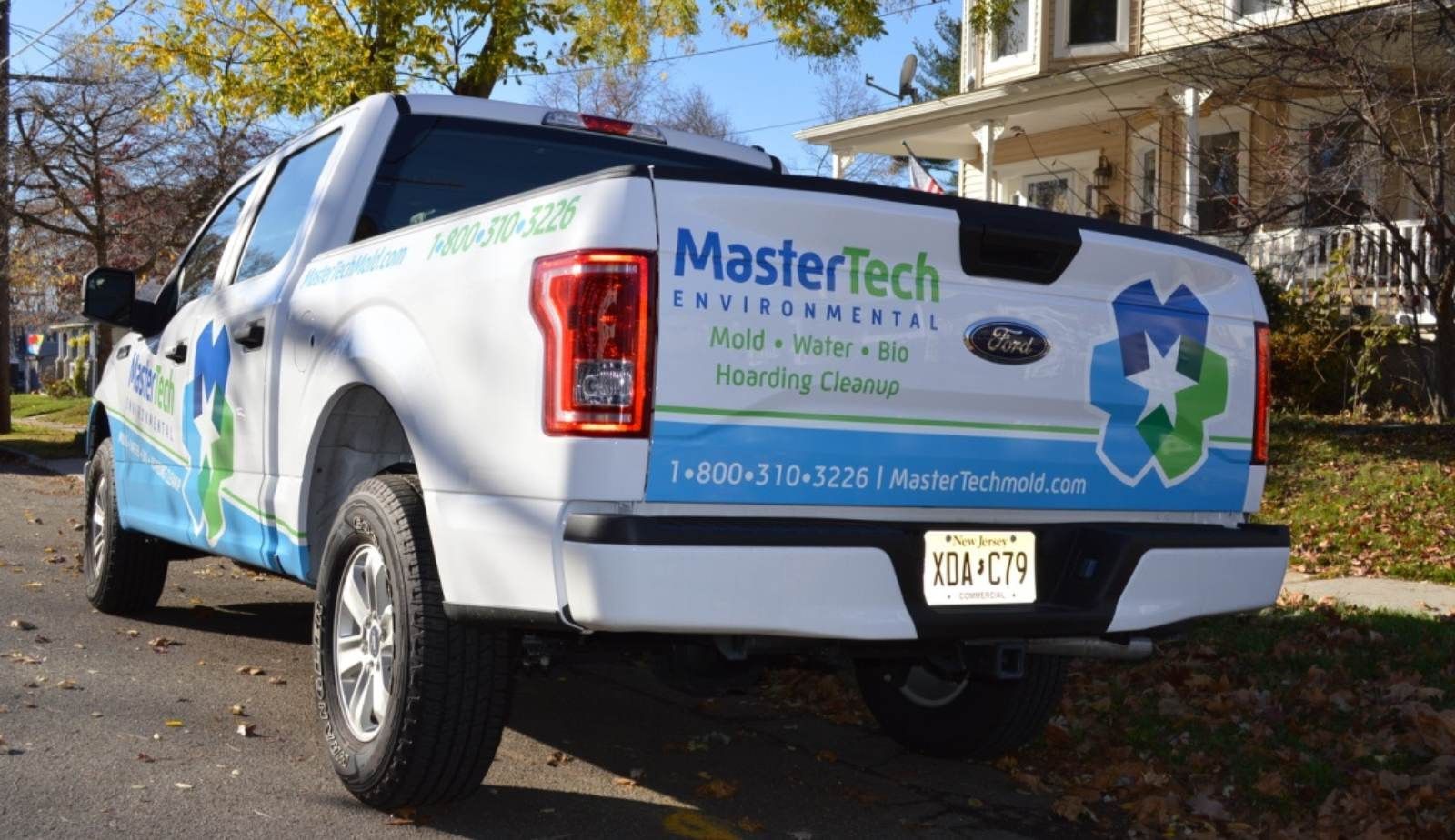
Home-Based Business Potential
Starting a mold and water damage restoration company doesn’t require costly retail space or high rent. With remote tools and digital systems, business owners can streamline operations from a home office.
Launching from a Home Office
Many mold remediation startups operate successfully from a home-based business model. The industry’s service-driven nature means that actual remediation work is performed on client sites. As a result, the main functions that need to be managed from “headquarters” are scheduling, client communications, recordkeeping, and billing.
This enables entrepreneurs to avoid the expense of commercial real estate, utilities, and unnecessary equipment storage. Basic requirements to get started often include a reliable computer, phone line, internet access, and secure storage area for gear and chemicals. Professionals also benefit from separating personal and operational spaces, using a dedicated office room or section within their home.
A legitimate home-based operation should comply with local zoning laws and insurance requirements. It’s important to check if there are restrictions or paperwork needed to run a service business from a residential address.
Remote Work and Technology Integration
Digital tools have made it possible to manage almost every aspect of a mold restoration business remotely. Teams can use cloud infrastructure to store and access files, contracts, images, and safety documents securely from any device.
A modern CRM tool helps track leads, schedule jobs, and communicate with customers, making it easier to coordinate field techs and monitor project timelines. Mobile-friendly apps allow managers to assign tasks, conduct inspections, and invoice clients without ever returning to a physical office.
Adopting a cloud-based management system centralizes workflows and reduces the need for on-site administrators. This model cuts ongoing costs and allows business owners to scale up or down as demand changes, all while keeping overhead lean.
Lean Staffing and Efficient Operations
Running a mold and water damage startup requires balancing skilled labor with operational efficiency. Lower fixed costs and streamlined team structures make it possible to deliver high-value service with less overhead.
Building a Lean Team
Successful startups in this field often operate with small, cross-trained teams. Each member is expected to handle both on-site remediation and essential customer communication. This approach eliminates unnecessary middle management positions, focusing resources on service delivery rather than bloated administrative layers.
Key roles typically include:
- Lead Technician
- Assistant Technician
- Field Assessor
- Scheduling Coordinator (which may be part-time or combined with another role)
By keeping staffing numbers lean and investing in versatile employees, businesses can quickly adapt to changing demand without excess payroll or idle hands.
Outsourcing Specialized Tasks
Some tasks require certifications, advanced equipment, or expertise that startups can’t justify hiring for full-time. Outsourcing makes it possible to bring in licensed professionals (such as environmental hygienists or industrial hygienists) only when their skills are essential.
Other common outsourced areas:
- Accounting and payroll services
- Marketing, especially digital marketing and SEO
- Legal consultations regarding compliance
This model lets startups control costs and avoid the risks associated with carrying surplus staff. Coordinating with trusted external partners also keeps quality consistent and ensures regulatory compliance.
Implementing Automation
Automation plays a central role in reducing overhead. Many startups implement robust CRM tools to manage client intake, estimate scheduling, and follow-up communications. These digital systems reduce administrative hours and minimize manual errors.
Automatic documentation, using apps for field reporting and photo upload, streamlines insurance claims and internal record keeping. Routing software helps organize technician schedules for the most efficient job site travel.
Implementing automation in daily tasks allows teams to handle higher volumes with consistent performance. This creates room for growth without scaling up payroll or office staff.
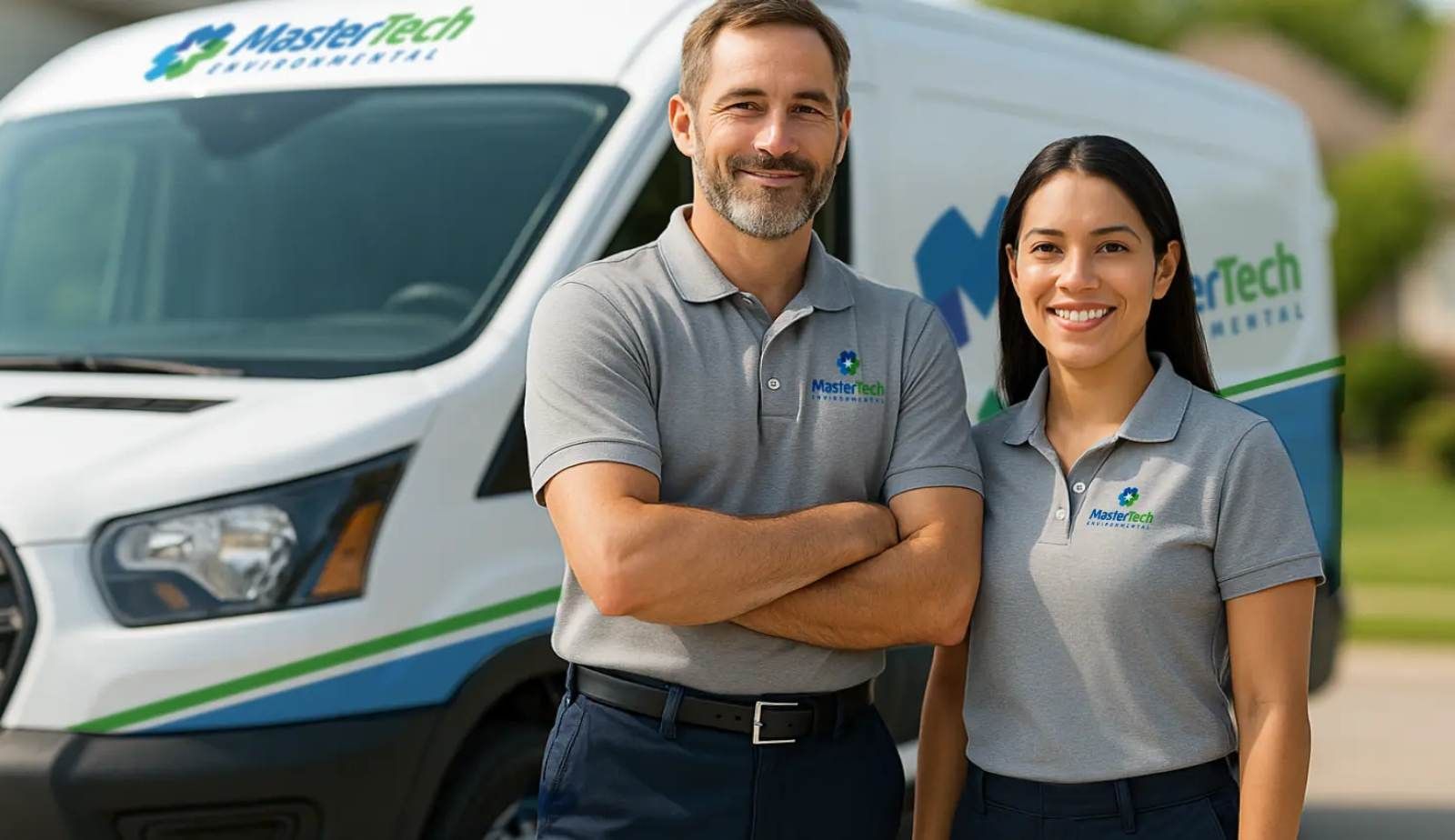
Financial Planning and Forecasting for Startups
Financial planning is critical for mold and water damage startups aiming for long-term sustainability. Reliable cost analysis, proactive revenue forecasting, and organized funding management are key to early and ongoing success.
Budget Development
Budgeting for a mold and water damage startup covers initial equipment, licensing, vehicle acquisition, insurance, and marketing. Founders should list all expected one-time and recurring expenses. This makes it easier to project their break-even point and avoid overspending.
A sample budget breakdown could include:
Expense CategoryEstimated CostEquipment & Supplies$8,000 - $15,000Vehicle$10,000 - $30,000Insurance$2,000 - $6,000Licensing/Permits$500 - $2,000Marketing$1,000 - $5,000
Lean staffing helps reduce overhead; field technicians and an owner-operator model are common. Home-based operations further cut costs by eliminating rent. Fixed and variable costs should be tracked monthly for clarity.
Financial Forecasting Strategies
Startups benefit from realistic financial forecasting based on conservative estimates of projects completed per month. Key inputs include local demand, average job size, and seasonality trends. Historical data from industry sources or similar businesses can help refine these projections.
Recent guidance suggests segmenting income streams (emergency response, remediation, preventative services) for more accurate forecasting. Estimating cash flow, gross margin, and sales cycles allows founders to anticipate working capital needs. Using spreadsheet tools or cloud software improves accuracy and makes scenario analysis faster.
Budgets and forecasts should be reviewed quarterly, adjusting for fluctuating expenses like fuel, supplies, or insurance premiums. This ensures numbers stay relevant and useful for decision-making.
Securing and Managing Funding
Mold and water damage startups usually rely on self-funding, small business loans, or lines of credit rather than venture capital. SBA loans and equipment financing are common options. Crowdfunding is less frequent but may fit local ventures with strong community ties.
Before approaching lenders, founders should prepare a clear business plan and detailed forecasts. Lenders examine the startup’s projected cash flow and collateral.
After securing funds, disciplined management is essential. Setting up cost controls and regular financial monitoring helps ensure funds are used efficiently. Tracking spending in real time helps owners spot problems early and adjust as needed.
Keys to Startup Success in the Mold & Water Damage Industry
Successful mold and water damage startups focus on identifying the right market, maintaining efficient operations, and leveraging innovation. Sustainability and customer relationships play a direct role in business longevity and profitability.
Identifying a Profitable Niche
Early-stage businesses should evaluate specific service gaps within mold and water damage restoration. The sector includes residential mold remediation, emergency water removal, commercial dehumidification, and specialty cleaning. Researching local insurance claim trends and property risks helps pinpoint valuable opportunities.
Niche targeting can reduce competition and enable premium pricing for specialized expertise. For example, serving high-risk flood zones or eco-friendly remediation methods increases market value. Effective niche selection should weigh regional demand, startup resources, and growth projections carefully.
A detailed competitor analysis reveals which services are oversaturated and where significant gaps remain. Entrepreneurs can test their minimum viable product (MVP) by offering pilot services to collect customer feedback before full-scale launch.
Designing a Sustainable Business Model
A sustainable business model keeps overhead low and maximizes service flexibility. Many mold and water damage startups begin as home-based operations, reducing the need for commercial leases and unnecessary staffing. Key expenses generally include equipment, certification, basic liability insurance, and marketing.
Using a lean staffing model allows owners to manage costs, especially in the initial phase. Scaling up should be linked to workload increases, not assumptions of instant growth. Initial investments in essential certifications like the IICRC S500 and S520 build credibility with homeowners and insurers.
Consider using a table to plan initial costs:
ExpenseEstimateEquipment$3,000–$10,000Training/Certification$1,000–$3,000Insurance$500–$2,000Marketing$500–$3,000
Regular business model reviews, such as monthly financial check-ins, help prevent overspending and identify emerging inefficiencies.
Customer Engagement and Retention
Customer trust is critical, as most clients face stressful property damage situations. Startups that excel in clear communication, punctual service, and upfront pricing tend to receive higher satisfaction ratings and more referrals.
Effective engagement strategies include:
- Sending prompt follow-ups after estimates and service calls
- Providing detailed reports and educational resources on damage prevention
- Implementing feedback loops using surveys or review requests
Offering annual inspections or maintenance contracts helps maintain ongoing relationships and creates a reliable revenue stream. Retention depends on responsiveness and consistent service quality, not just pricing.
Adapting to Industry Innovation
Constant changes in regulations, remediation technology, and insurance requirements impact operational practices. Startups must stay current with innovations—such as moisture mapping apps, remote monitoring systems, and eco-safe chemicals—to remain competitive and compliant.
Early adoption of digital job management tools can streamline scheduling, documentation, and customer communications. Participating in industry events and joining professional organizations allows startups to track regulatory changes and new best practices.
Being open to iterative improvement, guided by customer feedback and new developments, allows the business to update its minimum viable product and stay ahead of emerging issues in mold and water damage restoration.
Advice From Mastertech: Starting Strong
Succeeding in mold and water damage restoration requires more than technical expertise. Lean operations, a commitment to professional development, and careful growth management set experienced founders apart.
Practical Tips for New Entrepreneurs
Start lean by minimizing upfront expenses. Operate from home and use a simple digital system to track jobs, invoices, and lead nurturing. Essential initial investments include protective gear, moisture meters, basic remediation tools, and reliable transport.
Find mentorship early, either through industry networks or established companies like Mastertech. Seasoned professionals can provide guidance on client relations, quoting, and legal compliance.
Prioritize certifications from recognized industry organizations. Even for founders with hands-on skills, third-party training in safety, water extraction, and mold remediation reassures customers and increases credibility.
Keep a checklist of local, state, and federal regulations for hazardous waste disposal, insurance, and reporting. Mistakes here lead to fines or legal problems.
Avoiding Common Mistakes
Many first-time founders focus too much on equipment and forget that customer service and communication drive repeat business.
Failure to document services and damage details often leads to disputes with insurance providers and clients. Using digital platforms helps maintain clear records.
Undervaluing services is a frequent error. Comprehensive estimates, based on job complexity and materials, make for sustainable margins.
Lack of leadership development can stall company culture as a startup grows. Early emphasis on leadership skills helps founders manage teams and establish robust processes.
Finally, neglecting ongoing training leads to poor safety practices and liability risks. Leading brands like Mastertech regularly update protocols and require continuous staff education.
Growth Strategies for Long-Term Success
Scale wisely by reinvesting profits into higher-efficiency equipment and targeted local marketing. Consistent branding and online reviews build trust for newer businesses.
Develop formal mentorship programs inside the company to continuously improve staff expertise.
Cross-train team members in both mold and water damage services for greater scheduling flexibility and lower staffing costs. This lean approach enables fast response and improved customer satisfaction.
Mastertech recommends entrepreneurs regularly benchmark performance with industry standards, seek feedback from clients, and build relationships with insurance adjusters for stable lead flow and long-term success.
Frequently Asked Questions
Startup costs, home-based business options, and lean team structures play a critical role in the mold and water damage sector. Experts highlight how focusing on efficient spending and strategic service models allows new businesses to compete and grow rapidly.
What are the typical startup expenses associated with a mold remediation business?
Common initial costs include licensing, insurance, training, and purchasing safety gear such as respirators and protective clothing. Entrepreneurs also need basic remediation equipment like air scrubbers, dehumidifiers, and moisture meters.
A used equipment option or rental can significantly lower upfront costs. Most states require insurance and proof of certification for legal operation.
How can one start a water damage repair business on a shoestring budget?
Starting small is possible by renting equipment instead of buying and taking on only essential insurance at first. Training can be completed through online courses or local organizations, keeping learning affordable.
Solo operators can initially work from home to avoid the need for a physical office. Focusing on emergency services or subcontracted work also reduces required capital.
What are the most profitable low-cost businesses for entrepreneurs in the mold and water damage industry?
Niche services, such as mold inspections or localized emergency water extraction, require lower investment in equipment and training than full-scale remediation.
Mobile rapid-response cleanup and consulting on mold prevention are other examples of profitable, low-cost segments. These niches often let startups avoid major warehousing and staff costs.
What home-based mold and water damage business models exist that require minimal initial investment?
Consulting, testing, and inspection-focused models can be run from home with minimal inventory and equipment. Reports and recommendations for remediation can be delivered remotely.
Freelance or subcontracted cleanup allows the operator to use client-supplied equipment and materials. Digital marketing and bookkeeping can also be managed from a home office.
How do lean staffing strategies benefit a startup in the mold and water damage industry?
A lean team reduces payroll, simplifies management, and allows for greater flexibility. Owners can perform most operational roles themselves at first, only hiring when business volume requires it.
Other tasks, such as administrative work or marketing, can be outsourced as needed. This keeps overhead low and profitability higher in the early stages.
What advice do industry experts like Mastertech offer for maintaining low overhead in a water damage business?
Experts recommend starting with essential services only and building relationships with reliable subcontractors instead of maintaining a large staff. Seasonal or on-demand help is often more cost-effective than full-time hires.
Careful monitoring of spending, regular equipment maintenance, and prioritizing customer referrals are strategies to keep costs down. Investing in quality training upfront can also reduce liability and long-term expenses.
Get in Touch
Contact Us
Don't be a stranger!
30 Broad St, Unit 7
Denville, New Jersey 07834

